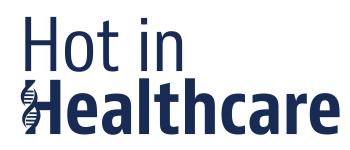As already well noted on this blog, on 26 April 2023 the European Commission published a set of proposals for the reform of EU pharmaceutical legislation.
A key plank of the reforms comprises measures designed to preserve and protect the supply of medicines across the EU, in particular, critical medicines. Although many member states already have mechanisms in their armoury to protect their own supply chains, this reformatory drive to protect supply chains throughout the EU can be explained via the lessons learnt during the major supply chain disruption during the COVID-19 pandemic and the unseemly fight for vaccines. The new reforms emphasise the need for measures designed to protect supply chains to be harmonised.
The new measures aimed at improving supply chain continuity include adding some new responsibilities expected of marketing authorisation holders.
In general, MAHs have a general responsibility to ensure an appropriate and continued supply of their medicinal product.
Specific new responsibilities for MAHs will include:
- stronger and earlier reporting obligations (applicable to Centrally Authorised Products and nationally authorised products), together with an obligation to provide impact risk assessments when there is an intention to temporarily or permanently cease marketing in a Member State. Most notably, when a marketing authorisation holder intends to withdraw their marketing authorisation for a critical medicine permanently, that holder should offer to transfer the particular marketing authorisation to a third party on “reasonable terms”.
- shortage prevention and monitoring; MAHs will be obliged to prepare and maintain an up to date Shortage Prevention Plan (SPP), for every medicinal product that is placed on the market (this is applicable to CAPs and nationally authorised products). The content of an SPP should include a risk strategy, supply chain map and an outlined process for the detection of shortages, for example. For critical medicines, MAHs must provide SPPs to the competent authorities upon request. The EMA’s Executive Steering Group on Shortages and Safety of Medicinal Products may make recommendations to the MAHs, for example including diversification of suppliers, in order to avoid shortages of medical products. Moreover the Commission can impose contingency stock requirements for active ingredients and finished dosage forms.
There is some disappointment amongst EU members that these reforms, designed to ensure supply chain security, do not go far enough. As examined in our recent post The EU Pharma Package from a National Perspective: Member States’ First Reactions, a series of policy papers have been published by various Member States. A Belgian government non-paper, “Improving the security of medicines supply in Europe”, calls for more drastic steps to be taken, beyond the measures proposed in the EU pharmaceutical package. For example, including a voluntary solidarity mechanism to temporarily alleviate acute shortages in member states, establishing a European list of critical medicines whose supply, production and value chains must be monitored, and exploring a Critical Medicines Act to reduce dependencies for critical medicines and ingredients, particularly for products where there are only a few supplying manufacturers or countries. This non-paper has been co-signed by 18 EU countries and this and the other policy papers indicate that more lobbying and positioning is likely in the legislative process to come.
Stay tuned for more updates to follow regarding the EU pharmaceutical package reforms designed to preserve and protect the supply of medicines across the EU.
For further information please contact Julia Gillert, Els Janssens and Magda Tovar.







